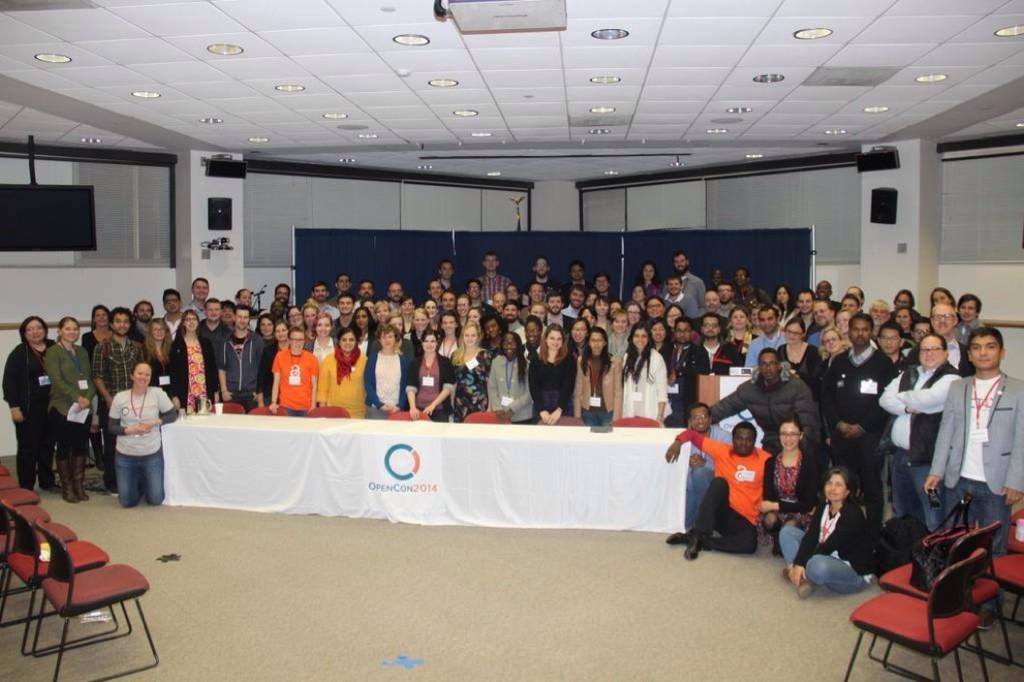#OpenEd14: An experience on finding a way for the future of education
OpenEd is the world’s biggest open education conference. Its themes include exploiting the synergies between open education and parallel work in the open data, open access, open science, and open source software movements; models that support the broad adoption and use of open educational resources in primary, secondary, post-secondary, and informal education; promoting and evaluating institutional and governmental open policies and strategies…
Sounds like the right place for the Open Education Working Group to be!
 Renata Aquino Ribeiro from São Paulo, Brazil was able to attend OpenEd and has written a post for us on her experiences. Renata is currently a researcher in social development, technology and education at Business and Economics Faculty (FEAAC) at Federal University of Ceará (UFC). She writes on her blog Pesquisa Educação (in Portuguese) and tweets at @renataaquino.
Renata Aquino Ribeiro from São Paulo, Brazil was able to attend OpenEd and has written a post for us on her experiences. Renata is currently a researcher in social development, technology and education at Business and Economics Faculty (FEAAC) at Federal University of Ceará (UFC). She writes on her blog Pesquisa Educação (in Portuguese) and tweets at @renataaquino.
Open Education Conference 2014 happened from 17th to 21st November in Washington D. C. and it was much more than a conference to discuss OER, open data, open scholarship and research. The conference discussed ways for the future of education, considering all things open, including democracy, communication practices, learning attitudes and much more.
I had arrived in D. C. a few days before for #OpenCon2014 – A conference on open data, open access and education for students and early career researchers. I was already extremely happy with what I’ve learned, discussed and built at OpenCon and could never anticipate how much more the days of OpenEd14 would be important to me. Both conferences help greatly those who are into the science world (OpenCon) and education (OpenEd) with a strong weight on policy-making discussions and debates with advocacy experiences in the political institutions around Washington, a once in a lifetime experience.
As a participant from Brazil, I could learn from the experience of educators in the US in policy-making for OER adoption in their institutions at organizational level to state and federal level, and I was amazed at the similarities and differences in these processes between countries. Many international experiences shown in OpenEd14 also brought up a how-to for OER practices and catalogs and maps that may help follow the way for a great deal of countries and regions still struggling to tackle the issue. For instance, the OER World Map presentation and the MIRA project for Latin America.
In a more practical, hands-on approach for teachers leading the way for open practices in their institutions, the variety of presentations on software, institutional repositories and pedagogical strategies presented in OpenEd2014 are a great resource. A few of those resources and some presentations with hints that can help teachers out:
- Co-Krea – OER and teacher training resources from Fundación Karisma from Colombia.
- OER Research Hub Ethics Manual – great for those producing research on open access with open data. One of the may great works by the OER Research Hub that also shared the OER Research Report.
- Social and ethical stances of MOOCs – student data can never be an underrated topic and this presentation shows a lot about the implications of why this is so.
- How not to promote open sharing – you can always go wrong, even when trying to do good. This courageous sharing of experience from UBC shows the caution necessary before implementing policies regarding OER in organizational level.
- If Freire made a MOOC – my PhD was in a program that Paulo Freire participated in and I can tell he’d be smiling from heaven when this was presented. As one of the creators of massive literacy adult education movements in Brazil (the MOBRAL – project aimed at enabling impoverished workers to read, write and become critical and emancipated citizens), he wouldn’t definitely be too far from these ideas.
There is a lot more to be seen from #OpenEd14 on twitter and on the conference website. The keynotes videos are also available.
The next OpenEd2015 will be in Vancouver at UBC. I’m sure it will be a great event and I surely recommend following it.
I’ve also added my favorite pictures, moments, quotes, presentations, videos and recaps here: http://pesquisaeducacao.wordpress.com
 Open Education Working Group
Open Education Working Group 





[…] Read it here. […]